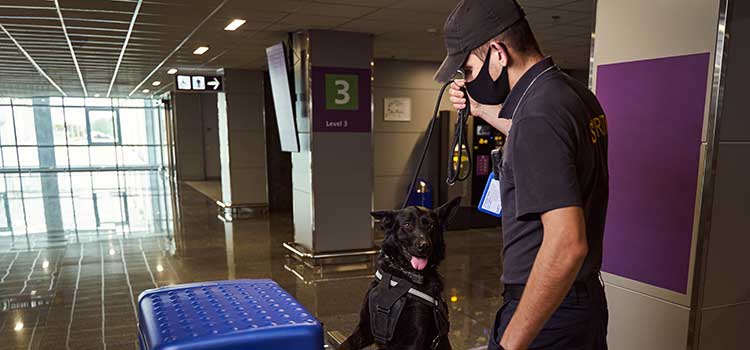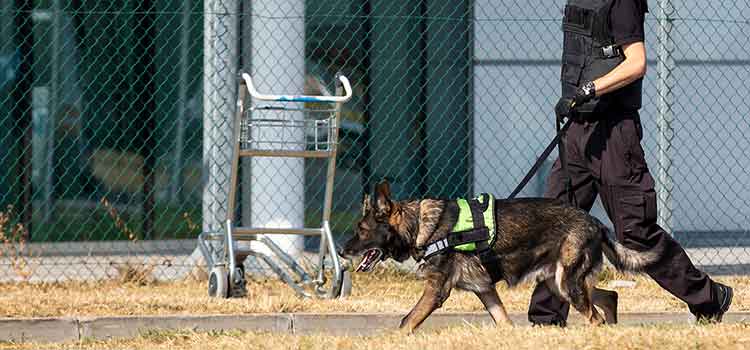In this article
Narcotics officer education information

Learn how to become a narcotics officer in 5 steps
Earn a bachelor’s degree.

Though some states may not require a degree—or only require an associate degree—the general level of education is a bachelor’s degree, preferably in a related field such as criminal justice or criminology. Narcotics officers usually transfer from a police or peace officer post into the unit but you can apply directly out of college.
Enroll in your state’s special narcotics officer program.

After earning your degree, you can apply to the narcotics officer special training program that prepares you to work as a narcotics officer. Each state will have specific requirements to help you meet the challenges of the job. For example, California’s Advanced Training Center which is under the State of California Justice Department, requires completion of an 80-hour program in narcotic investigations that will provide you with the knowledge and skills necessary to buy narcotics undercover, conduct investigations and learn how to testify in court.
Most states will also require that you pass a background check, drug test and polygraph test.
Complete your program and get licensed.

In order to get licensed you’ll need to do two things:
• Pass the Peace Officer Standings and Training test (POST)
• Pass a psychological evaluation and physical exam
Find a narcotics officer position.

If you’re a current peace officer you can apply to transfer into the department or, if you are joining after graduating from college, you should complete the above steps.
Join law enforcement groups to help advance your career.

Staying on top of changes in narcotics surveillance techniques, technology and street and market drug trends, is critical for a narcotics officer. Networking with other officers and joining associations, such as your State Narcotics Association Coalition or National Narcotics Officer Association, can help you keep abreast of changes, and may help later on if you want to advance your career to an administration or senior level position.
What you’ll do as a narcotics officer
Narcotics officers enforce local, state, and federal narcotics laws.
They investigate narcotics-related crimes including drug trafficking and drug possession using a variety of resources and techniques.
Examples of the techniques and resources include the following:
- K-9 units
- Surveillance
- Wire taps
- Undercover work
- Developing and using informants
- Communicating with other law enforcement agencies to coordinate task forces during investigations
- Buy/bust operations to thwart the blatant sale of narcotics on the streets
In addition to investigating and enforcing drug related laws, narcotics officers may also be involved in serving warrants, apprehending suspects, and prosecution. They may even testify in court as to the methodology used during the investigation to apprehend the criminal.
Qualifications and education
Narcotics agents most often begin their career as a police officer or related law enforcement officer. In addition to this, most federal law enforcement agencies require applicants to hold a bachelor’s degree. Completing P.O.S.T. (Peace Officer Basic Training) certification and earning a bachelor’s degree in criminal justice, law enforcement, public administration, or a related field can provide a competitive advantage when applying for a limited number of positions.
With a few years of law enforcement experience an officer becomes eligible to write or test for promotions and special assignments, such as to a Narcotics Task Force.
Any and all additional experience, education, and skills become critical in setting oneself apart from other candidates. Officers must also possess characteristics such as:
- Honesty
- Integrity
- Accountability
- Dedication
- Professionalism
- Respect
- Team player
Salary and job outlook
According to the U.S. Bureau of Labor Statistics most current Occupational Employment Statistics, narcotics officers, who are classified as police and sheriff’s officers, earn a median annual salary of $72,280.
While job growth is expected to be slightly slower than the national average—3.3%—through 2031, many law enforcement agencies may look favorably on those who have taken the initiative to earn their credentials prior to applying and may pay higher police salaries to those who do.
Actual salaries may vary greatly based on specialization within the field, location, years of experience, and a variety of other factors. National long-term projections of employment growth may not reflect local and/or short-term economic or job conditions and do not guarantee actual job growth.
